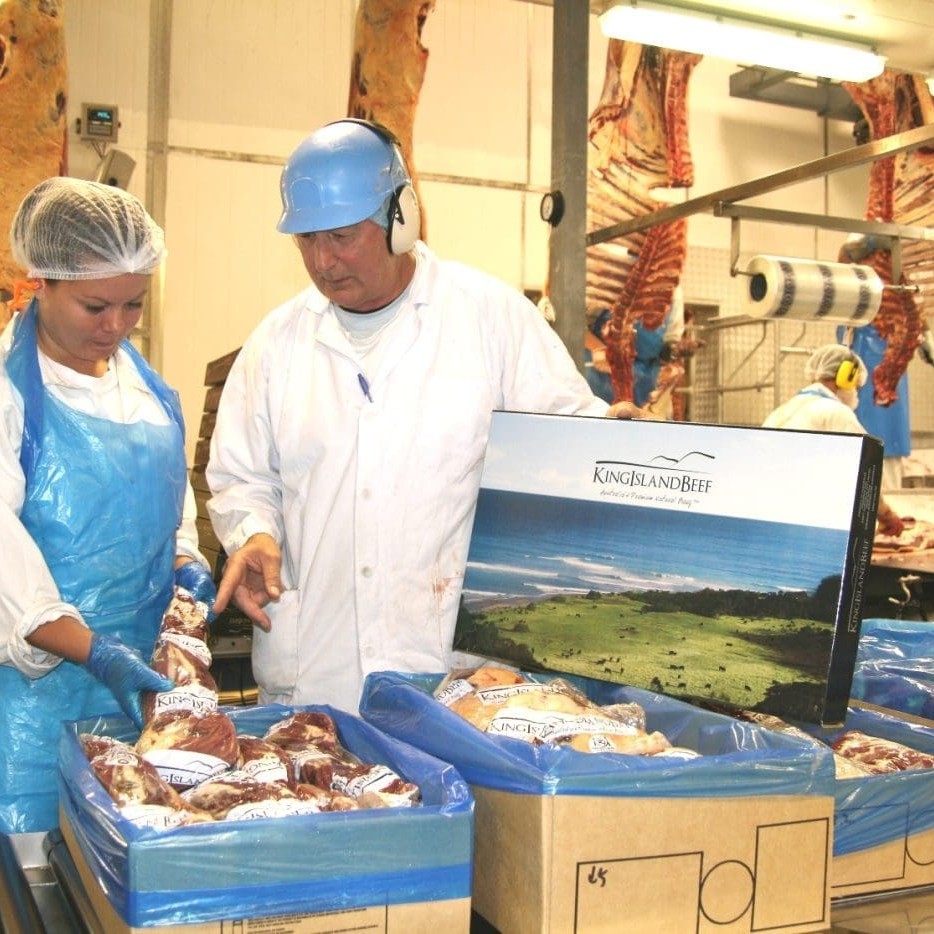Latest listings on our Jobs Central recruitment page:
- Production & Livestock Coordinator (AA Co)
- Cattle Station Manager – Alice Springs area (McLelland Rural)
- Station Manager – Rockybank (S. Kidman & Co)
- HR Information Systems Manager – JBS Australia
- Beef Boning Room Area Leader – JBS Australia
- HR Officer – JBS Australia
- Skilled Boners, Slicers and Knife-hands – JBS Australia
- Livestock buyer / Company representative – Stanbroke
- Meat trader – Rimfire Resources client
- Lecturer – Rimfire Resources client
- Director, Australian Meat Processor Corporation
- Business & Promotion Manager – Shorthorn Beef
To access Jobs Central page, including full listings and job descriptions, click here.
 THE recently-released Australian Workforce and Productivity Agency’s Food and Beverage Workforce study has found that the agricultural and wider food sector needs more highly skilled workers.
THE recently-released Australian Workforce and Productivity Agency’s Food and Beverage Workforce study has found that the agricultural and wider food sector needs more highly skilled workers.
The study’s central finding was that responsibility for driving the food and beverage industry workforce development agenda should be invested in a fully representative and authoritative body with the necessary mandate.
Other significant recommendations included:
- the establishment of a career promotion strategy
- further developing the skills of the existing workforce
- encouraging more employers to invest in training, and
- increasing industry involvement to ensure education and training is industry-relevant.
Australia’s food and beverage industry, encompassing agricultural production and food and beverage processing, employs more than half a million Australians and accounts for around four percent of the nation’s gross domestic product, the report said.
The industry also contributes significantly to Australia’s export income, with exports valued at $30.5 billion in 2011–12, representing 11.5pc of total merchandise trade.
While total employment across the industry has fallen in recent decades, the value of production has continued to rise as productivity has improved. Productivity growth will need to be sustained if Australia is to take full advantage of the export opportunities opened by the growing global demand for food – particularly from the emerging middle classes in Asia, the report’s preamble said.
“Much of the future growth in this industry depends on successfully selling to new customers in rapidly growing Asian markets. A highly skilled and adaptable workforce will be required to make the most of these opportunities. Increasing the skills and adaptability of the food industry workforce, which has relatively low skills compared to the workforce as a whole, will require major changes in the attitudes and practices of the industry,” the report found.
The study was developed in consultation with industry, unions and education stakeholders. It put forward 13 recommendations to build a more adaptive, skilled and innovative agrifood workforce.
Key messages from the study can be accessed here.
The National Farmers’ Federation has welcomed the report’s release, saying it added weight to what NFF had long been saying – that the ag sector as a whole needed more skilled workers, and that achieving this would require greater collaboration across the entire education and agricultural industries.
NFF chief executive Matt Linnegar said people were the sector’s greatest resource, and ensuring the industry had a strong and sustainable workforce into the future was a priority -not only for the NFF and farmers and graziers, but also the wider agricultural, food and fibre sectors.
“The lack of skilled workers in agriculture and across the wider sector emerged as one of the key issues facing the industry in the NFF-led, industry-developed Blueprint for Australian Agriculture – an issue that requires action today to ensure our sector can continue to grow into the future,” he said.
“The NFF has long called for a body that can oversee the entire education and careers pathway area – from teaching primary school students about agriculture, to developing interest in agricultural careers as students reach high school, to providing education, training and development opportunities for people as they progress into, and along, their careers.”
“We welcome one of the key recommendations from the AWPA report, which is to develop a national coordinating body for driving industry workforce development.”
NFF planned to work closely with this body as it is developed, ensuring close integration between it and the NFF’s National Workforce Development Plan, currently in development.
“We also welcome other key recommendations from the report, including the establishment of a career promotion strategy; further developing the skills of the existing workforce and encouraging more employers to invest in training,” Mr Linnegar said.
Critically, the AWPA report acknowledged one of the NFF’s key concerns – the lack of robust data that current exists around the workforce development needs of agriculture.
“This lack of data is impacting on the development of education and skills policies for the industry, so we believe one of the first tasks of a new national coordinating body should be to fill in the data gaps by developing a workforce profile for the sector,” he said.
